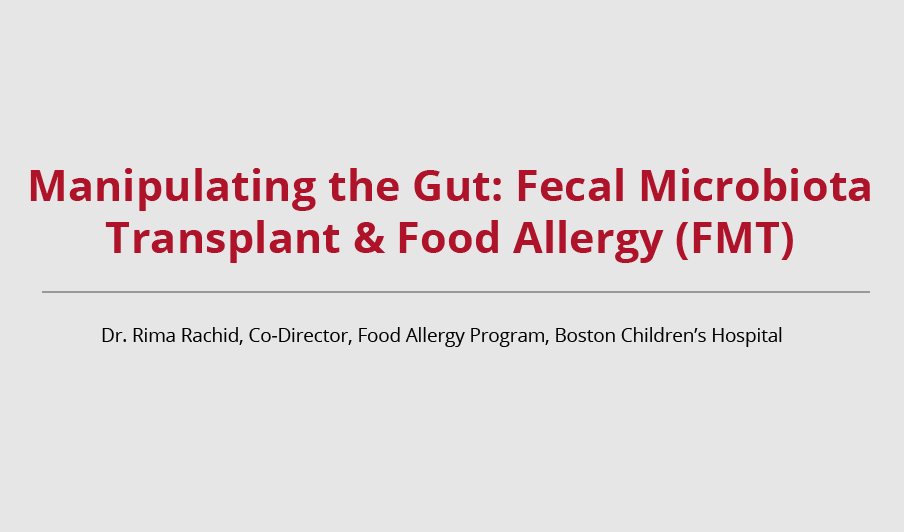A Phase II Trial Evaluating the Safety and Efficacy of Microbiota Transplantation Therapy (MTT) in Children with Food Allergy
Funded by the Food Allergy Fund
In 2019, the Food Allergy Fund provided crucial support to the first Phase I trial in the world evaluating the safety and efficacy of oral encapsulated fecal microbiotatransplantation (FMT) in patients with peanut allergy. The study was conducted at Boston Children’s Hospital and was led by Dr. Rima Rachid. The study also focused on the relationship between bacteria and immune function. The results were very promising, showing that 40% of patients increased their threshold of reactivity from 100 mg of peanut protein or less (<=1 data-preserve-html-node="true"/2 peanut) to 300 or 600 mg peanut protein 1.5 to3 peanuts, just from one fecal transplant. Interestingly, the results also were prolonged, as the protective response was observed both at 1 month and at 4 months post FMT. These responders showed an increase in the immune cells that are important for food tolerance and a decrease in the cells that are critical for the allergic response.These results show promising efficacy in food allergic adults (a challenging patient group to treat for allergic tolerance) from a single dose of FMT. Importantly, when the stools of the responders taken at baseline were administered to highly food allergic mice, there was no protection from anaphylaxis, which is a very strong allergic and life-threatening reaction. However, when the stools of the responders collected four months post FMT were administered to these mice, there was a very significant protection from anaphylaxis.
With the promising results of Phase One, the Food Allergy Fund is now supporting the Phase II trial -- launched in June 2023. This cutting-edge study, led by Dr. Rachid, evaluates the safety and efficacy of oral encapsulated microbial transplantation therapy (MTT) in teens (age 12-17 years) with peanut allergy, in collaboration with Dr. Alexander Khoruts from the University of Minnesota. MTT is a purified and concentrated form of FMT, containing less than 1% fecal material in the capsules. MTT can be kept in a regular home refrigerator, which offers a “realistic” approach for the future use of FMT. Patients will receive MTT or placebo for one month and will return to have their peanut allergy evaluated to see if their threshold of reactivity has improved.


